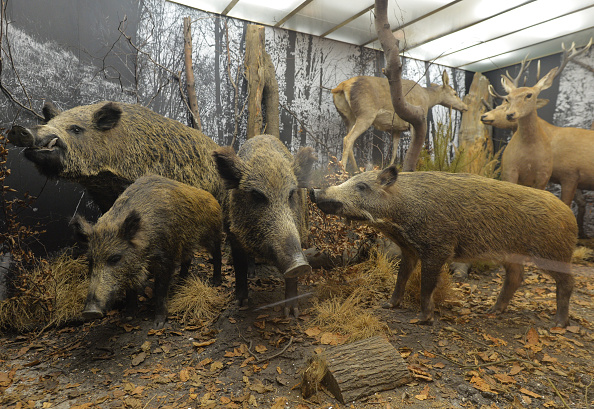
Confirmed cases of African swine fever in Germany rise to 32

On Saturday, September 19, 2020, in Svidnik, Presov Region, Slovakia. (Photo by Artur Widak/NurPhoto via Getty Images)
With three previously suspected cases of African swine fever (ASF) in wild boars in Brandenburg, northern Germany, being confirmed, the total number of confirmed ASF cases in Germany has risen to 32, the Federal Ministry of Food and Agriculture (BMEL) announced on Thursday.
The Friedrich-Loeffler-Institute (FLI), the Federal Research Institute for Animal Health, confirmed the animal disease in the respective samples. The sites where the three wild boars were discovered were all located within the designated risk area.
Two weeks ago, the first case of ASF was confirmed in a wild boar in Brandenburg, whereupon local officials established a risk area with a radius of 15 km around the first discovery site.
Germany’s domestic pig population was still free from ASF, a disease not dangerous for humans, the BMEL stressed.
In addition to electric fences, the state of Brandenburg announced the construction of a solid fence along the border with Poland. “We will build it now,” said Brandenburg’s Minister of Consumer Protection Ursula Nonnemacher on Tuesday in Potsdam, capital of Brandenburg state.
With the beginning of a three-day conference of agriculture ministers in the federal state Saarland on Thursday, the German Farmers’ Association (DBV) and the German Hunters’ Federation (DJV) called for coordinated action against ASF in Germany.
A central crisis team should control the activities beyond district or federal state borders, DBV and DJV demanded in a joint press release. “In particular, the border with Poland must be made wild boar-proof so that infected animals do not continue to follow on a regular basis.”
Germany’s farmers and hunters also suggested intensifying wild boar hunting on the German side along the Polish border. To that end, politicians and authorities were called upon to remove legal obstacles as quickly as possible.
“Our goal must be to prevent the spread of ASF to other federal states and into the domestic animal population with a joint national effort and to get it out of our country again,” Minister of Food and Agriculture Julia Kloeckner told the German Press Agency (dpa) on Thursday.






